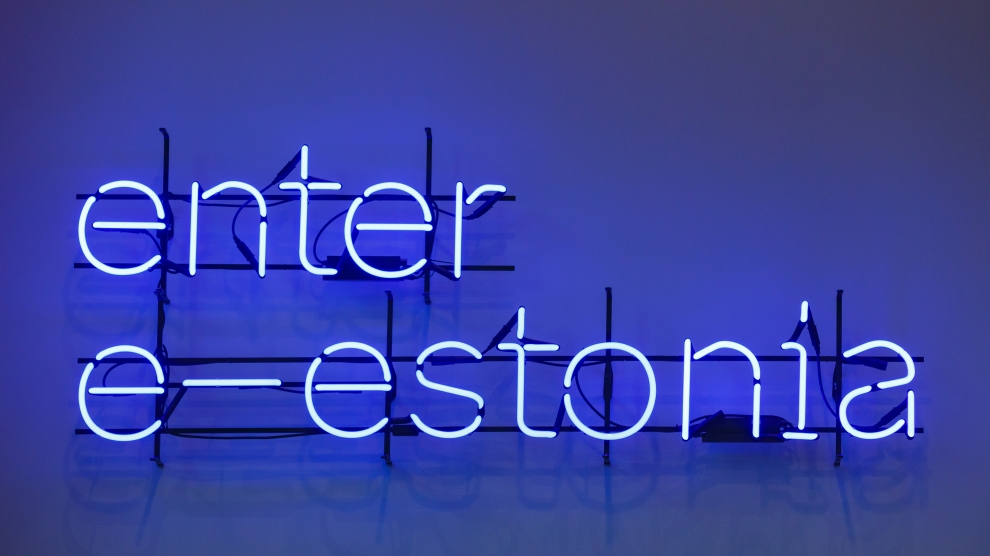You write too much about Estonia, and it’s always complementary – a genuine ‘complaint’ from a reader of Emerging Europe.
Well, throwing convention and my usual mantra of “never apologise, never explain” out of the window, here’s why I write so much about Estonia, and why what I write is usually positive.
Estonia is not just emerging Europe’s most digital society, it is perhaps the most digital society in the world. The country – which brands itself as e-Estonia – has now reached the point where more than 99 per cent of public services are accessible online. Only three things can’t be done online: marriage, divorce and buying property.
Ninety per cent of the population has internet at home, and those who don’t can go to public places such as libraries to use the internet for free. What’s more, 10 per cent of Estonian students now study IT, twice as many as in any other OECD country.
The country is, quite simply, the gold standard for how digital government can, and indeed should, work.
This has helped to create a society where innovation in technology is now almost an inherent trait. It is no wonder that the country continues to produce so many great start-ups.
Startup Estonia, a governmental initiative aimed to supercharge the Estonian start-up ecosystem, claims that just 20 start-ups accounted for 61 per cent of new jobs created in the sector in the first half of 2019.
Skilled migrants are increasingly viewed as a solution: 13 per cent of start-up employees now come from outside the European Union, Startup Estonia says.
“Diversity is an important underlying pillar for a vibrant and sustainable start-up ecosystem,” says Maarika Truu, the head of Startup Estonia. “And by diversity, we don’t only look at gender equality but diversity in terms of socio-economic background, culture and religion, but also education levels.”
Estonia is not without its problems. Its current government has a markedly nationalist bent, and its lukewarm – at best – reaction to the European Union’s Next Generation EU Covid-19 recovery package has been disappointing. Finance Minister Martin Helme went so far as to call it “a big step towards a United States of Europe,” as though that were a bad thing.
Last December the country’s president, Kersti Kaljulaid, as well as the prime minister, Jüri Ratas, were forced to apologise after the interior minister, Mart Helme, the father of Martin Helme and the leader of the far-right Estonian Conservative People’s party, a member of the ruling coalition, called the then new prime minister of neighbouring Finland, Sanna Marin, “a sales girl.”
A money laundering scandal at the Estonian branch of Danske Bank in 2018 demonstrated that the country still has some work to do in order to fully clean up its financial sector. Estonia’s own financial watchdog said last year that “unacceptable” clients remain in the country’s banking system, despite tougher regulations put in place following the Danske Bank affair.
Estonia also, regrettably, forces its young men to carry out compulsory military service: something I could never support and which I consider a large black mark against its otherwise generally good name. And while Estonia in 2016 became the first ex-Soviet state to recognise same-sex unions, allowing same-sex couples to sign a cohabitation agreement, same-sex marriage is not currently an option.
Estonia was also told by the Council of Europe in 2018 to build a more cohesive society, to strengthen the protection of women from violence, close the gender pay gap and uphold the rights of older people.
By and large however, Estonia is a progressive country in every sense of the word. It is a pioneer in digital government, and politicians of all stripes – whatever else they may disagree on – appear committed to making the lives of citizens easier. They are also committed to making Estonia a truly international country whose influence and clout goes far beyond its borders. The recent decision to begin issuing digital nomad visas, which will reinforce its already hugely successful e-residency programme, is further evidence of this.
Those of us who have to use the few, plodding digital services offered by so many other countries around the world can only dream of the streamlined simplicity e-Estonia offers. Leaders from across the globe should be booking visits post-haste to the e-Estonia Briefing Centre in Tallinn, where the story behind the country’s digital infrastructure, as well as the know-how that powers it, is explained in full, in the transparent manner that has become a feature of this remarkable country.
That, of course, is if they want to make the lives of their citizens easier. I am often left with the impression that they do not.
One of the main reasons Emerging Europe exists is to highlight best practice in the region. So we will continue to write plenty about Estonia; for as long, in fact, as the country continues to come up with so many examples of best practice, innovative solutions and remains a world leader in fintech, artificial intelligence and digital government.
If other countries in the region feel as though they do not get as much good press as Estonia, they might be better off asking themselves why that might be, not me.
—
Unlike many news and information platforms, Emerging Europe is free to read, and always will be. There is no paywall here. We are independent, not affiliated with nor representing any political party or business organisation. We want the very best for emerging Europe, nothing more, nothing less. Your support will help us continue to spread the word about this amazing region.
You can contribute here. Thank you.







[…] READ MORE FROM SOURCE ARTICLE […]
[…] Why I write so much about Estonia Emerging Europe “startups when:1d” – Google News […]
[…] so much best practice comes out of Estonia that our editor was earlier this year moved to write a short editorial explaining why we feature the country so […]
[…] That article prompted a response from one disgruntled reader (presumably not from Estonia) claiming that we write far too many nice things about the place. Later in the year I explained why, and offered a few ideas as to how other countries can also get some get good press, here. […]